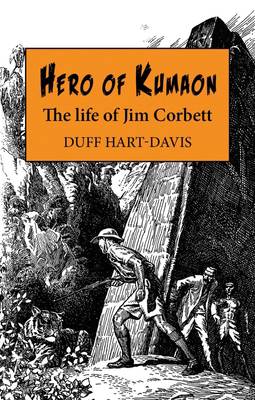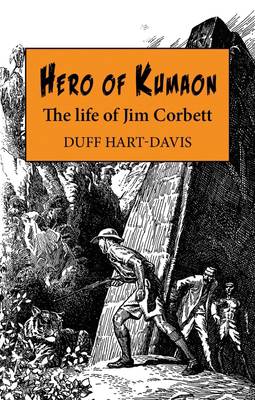
Bedankt voor het vertrouwen het afgelopen jaar! Om jou te bedanken bieden we GRATIS verzending (in België) aan op alles gedurende de hele maand januari.
- Afhalen na 1 uur in een winkel met voorraad
- In januari gratis thuislevering in België
- Ruim aanbod met 7 miljoen producten
Bedankt voor het vertrouwen het afgelopen jaar! Om jou te bedanken bieden we GRATIS verzending (in België) aan op alles gedurende de hele maand januari.
- Afhalen na 1 uur in een winkel met voorraad
- In januari gratis thuislevering in België
- Ruim aanbod met 7 miljoen producten
Zoeken
Omschrijving
Jim Corbett became the hero of thousands of impoverished local families in the remote Indian region of Kumaon when, throughout the 1920s and 30s, he answered their pleas to rid them of the man-eating tigers and leopards which were ravaging their populations. Man-eaters roamed a region of hundreds of square miles over several years, killing the defenceless villagers at will: for example the Champawat man-eater had killed over 434 people in six years, the Panar maneater over 400.
Jim, one of 15 children, was born in 1875 to the local post-master in Nainital, and taught himself as a barefoot boy in his local jungle to become, in his spare time one, of the most skilled trackers of his day, fluent in the local dialects, patient beyond endurance and an excellent shot.
Duff Hart Davis' biography threads together the life of this very private, unassuming Indian railway clerk. Often through Jim's own written words, Duff sets out the highlights of Jim's adventures in sequence and in context, thus thowing light on Jim's remarkable character.
Jim, one of 15 children, was born in 1875 to the local post-master in Nainital, and taught himself as a barefoot boy in his local jungle to become, in his spare time one, of the most skilled trackers of his day, fluent in the local dialects, patient beyond endurance and an excellent shot.
Duff Hart Davis' biography threads together the life of this very private, unassuming Indian railway clerk. Often through Jim's own written words, Duff sets out the highlights of Jim's adventures in sequence and in context, thus thowing light on Jim's remarkable character.
Specificaties
Betrokkenen
- Auteur(s):
- Uitgeverij:
Inhoud
- Aantal bladzijden:
- 272
- Taal:
- Engels
Eigenschappen
- Productcode (EAN):
- 9781913159269
- Verschijningsdatum:
- 1/11/2021
- Uitvoering:
- Hardcover
- Formaat:
- Genaaid
- Afmetingen:
- 138 mm x 218 mm
- Gewicht:
- 498 g

Alleen bij Standaard Boekhandel
+ 44 punten op je klantenkaart van Standaard Boekhandel
Beoordelingen
We publiceren alleen reviews die voldoen aan de voorwaarden voor reviews. Bekijk onze voorwaarden voor reviews.









